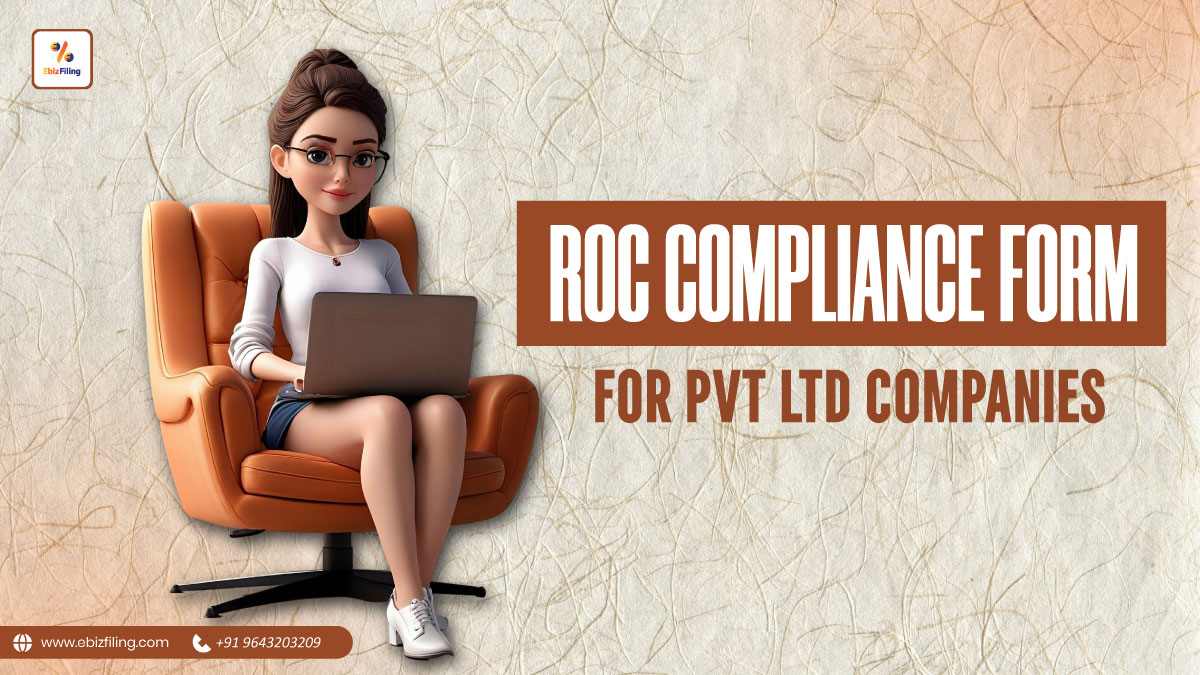Mandatory compliances for Private Limited Companies
Here are some mandatory compliances for Private Limited Companies;
1. Board meetings
Board meetings are formal gatherings of a company’s directors to discuss and decide on important matters related to the business. A Private Limited Company must hold its first board meeting within 30 days of incorporation and at least four meetings every year, with a maximum gap of 120 days between two meetings. These meetings help ensure proper decision-making and compliance with company laws.
2. Annual General Meeting
The company holds an Annual General Meeting (AGM) every year to present its financial performance and important updates to its shareholders. If applicable, a Private Limited Company must hold the AGM within six months after the end of its financial year. During the AGM, shareholders approve the financial statements and may appoint or reappoint auditors. This process promotes transparency and accountability to the shareholders.
3. Filing of Financial statements
Filing of financial statements involves submitting the company’s balance sheet, profit and loss account, and other financial details to the Registrar of Companies using Form AOC-4. This must be done within 30 days of holding the Annual General Meeting. It helps the government keep track of the company’s financial health and compliance status. Timely filing also avoids penalties and legal issues.
4. Filing of Annual Return
Filing of Annual Return means submitting details about the company’s structure, shareholders, directors, and other key information to the Registrar of Companies through Form MGT-7. This must be filed within 60 days from the date of the Annual General Meeting. It gives a snapshot of the company’s current status and ensures legal compliance. Non-filing can lead to penalties and other legal consequences.
5. Statutory Audit
A qualified Chartered Accountant conducts a Statutory Audit to examine a company’s financial records and ensure their accuracy and compliance with the law. Every Private Limited Company must have its accounts audited, even if it has no business activity. The auditor prepares an audit report and includes it in the financial statements. This process promotes transparency and financial discipline.
6. DIR-3 KYC
Every year, directors of a company must update their personal details such as address, contact number, and email with the Ministry of Corporate Affairs by filing the DIR-3 KYC form or completing the web based KYC. This ensures the government maintains accurate and up-to-date records of each director. If directors fail to comply, the government deactivates their DIN and imposes a penalty.
7. Income Tax Return Filing
Income Tax Return (ITR) filing is the process where a Private Limited Company reports its income, expenses, and tax liability to the Income Tax Department. It is mandatory for all companies, even if they have zero income or no business activity during the year. The ITR must be filed annually using the appropriate ITR form (usually ITR-6) before the due date. Filing helps the company stay tax compliant and claim refunds, if any. Late filing can attract penalties and interest on the tax payable.
8. Maintenance of Statutory Registers
Maintaining Statutory Registers means keeping official records of important company details such as shareholders, directors, share transfers, and charges. The Companies Act requires companies to keep these registers and update them regularly. They promote transparency and auditors or inspectors often review them. Maintaining these records properly is essential for smooth legal and financial operations.
Conclusion
In conclusion, ROC annual compliance is not just a legal formality but a vital part of responsible business management for Private Limited Companies. Timely and accurate filings help maintain the company’s legal standing and build trust with stakeholders. With the financial year, staying informed and organized is key to avoiding penalties and ensuring smooth operations. Companies must treat compliance as an ongoing priority, not just a year end task.
Suggested Read :
Compliance Calendar for Pvt Ltd company 2025-26
ITR Compliance Calendar For FY 2025-26
Tax Structures for Pvt ltd Company
How to Close a Pvt Ltd Company in India?











December 17, 2025 By Steffy A
Private Limited Annual Filing: Notes and Documents Checklist Important Notes for Private Limited Annual Filing The professional fees mentioned are exclusive of penalties and taxes, if any. DPT-3 (Return of Deposits) is not part of the standard package, as applicability […]
January 30, 2026 By Dhruvi D
ROC Annual Compliance Calendar for Pvt Ltd Company FY 2024-25 Introduction Missing any ROC due date can lead to penalties, late fees, and loss of active company status. Every Private Limited Company must comply with statutory timelines under the Companies […]
November 4, 2025 By Dhruvi D
Tax Audit for Private Limited Companies : Rules, ICAI Guidelines, and Extended Due Date Introduction A Tax Audit ensures that the financial statements of a Private Limited Company meet the requirements of the Income Tax Act. It becomes mandatory under […]